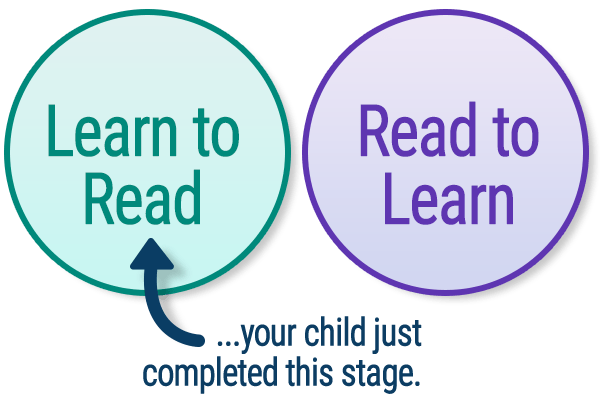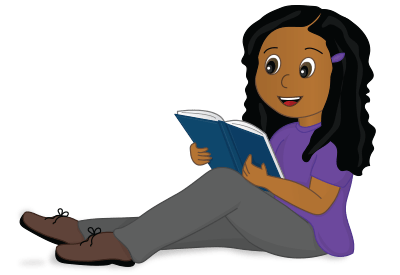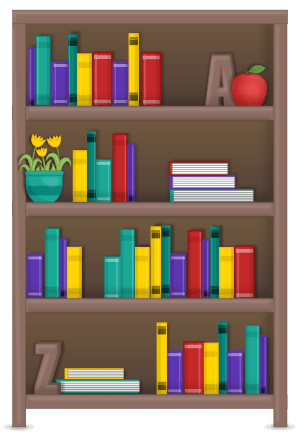Your Student Has Mastered the Concepts from All About Reading Levels 1-4
In most cases, students who master reading concepts can still benefit from spelling instruction. We recommend you also take our spelling placement test to see if your student might need a spelling curriculum.
What's Next for Reading?
There are two major stages of reading: “Learn to Read” and “Read to Learn.”

Congratulations! By mastering the content taught in the All About Reading program, your student has officially completed the “Learn to Read” stage.
Students at this stage have the phonics and word-attack skills necessary to sound out just about any familiar word. They can figure out words by dividing them into syllables, making analogies to other words, sounding out the word with the accent on different word parts, and recognizing suffixes and prefixes.
Now your student is ready for the next major reading stage: “Read to Learn.”
At this stage, reading is used to gain knowledge. Students will grow in their ability to react to information and connect ideas. The possibilities for exploring the world around them are limitless, and they can embark on this exploration through reference books, trade books, textbooks, magazines, and an endless array of literature. Ideally, this stage has no end; students will “read to learn” for the rest of their school career—and beyond.
Recommendations for the “Read to Learn” Stage
The "Read to Learn" stage does not require formal instruction like the "Learn to Read" stage does. As students move away from learning to read, their knowledge and vocabulary should grow, and their reading should become more automatic. But that doesn’t always happen entirely on its own. You will need to be proactive to ensure that your student continues to grow as a reader and as a learner.

Have your student read for 30 minutes every day.
Choose reading material that is interesting for your student, both fiction (such as great chapter books) and nonfiction (such as kid-friendly magazines). For more ideas, check out resources such as Honey for a Child's Heart by Gladys Hunt and Books for Kids: Master List from What We Do All Day.
Work on building your student’s vocabulary.
For most kids, reading and being read to are the best ways to do this. But for some great practical tips, be sure to check out this comprehensive article about building your student’s vocabulary.
What About Literature?
A study of literature is an important component of the "Read to Learn" stage, but for many kids, studying literature can easily become a “drag.” Remember, your goal during the "Read to Learn" stage is to encourage reading and to help your student continue to develop fluency and confidence, so it’s important to let your student be drawn into the joy of reading.

How do you make a study of literature more interesting? Here are a few ideas.
- Engage in discussions about things in the book that interest your student.
- Have your student search for great descriptive writing that really pulls them into the story.
- Discuss a character that your student empathizes with. Discuss your student's feelings about a choice the character makes. Would they make the same choice that the character makes?
- Is there a particularly interesting setting or theme in the story?
- Discuss a character in the story that your student would like to know in real life.
- Discuss how the story relates to an interesting period in history that you have studied with your student. How does understanding that history help you understand the story?
While encouraging students to read independently is important, reading good literature aloud together is a great way to model your own thought processes. This helps students learn to engage more effectively with what's being read and will help them grow more confident in their own comprehension ability.
Whether your student reads alone or together with you, be sure that your discussions are light and natural. You’ll have a good feel for how well your student is understanding the reading as you talk about the book or story. Too much “analysis” can make students dread reading, or worse, make them think they aren't doing it “right.”
If you are looking for a more formal approach to teaching literature, here are a few literature guides our customers have found helpful.
- Lightning Literature (from Hewitt Homeschooling)
- Teaching the Classics (from Institute for Excellence in Writing)
- Essentials in Literature (from Essentials in Writing)
- Veritas Press Comprehension and Study Guides (recommended by Laura C.)
- Progeny Press Study Guides (recommended by Sarah M.)
- Memoria Press Literature Guides (recommended by Erica F.)



